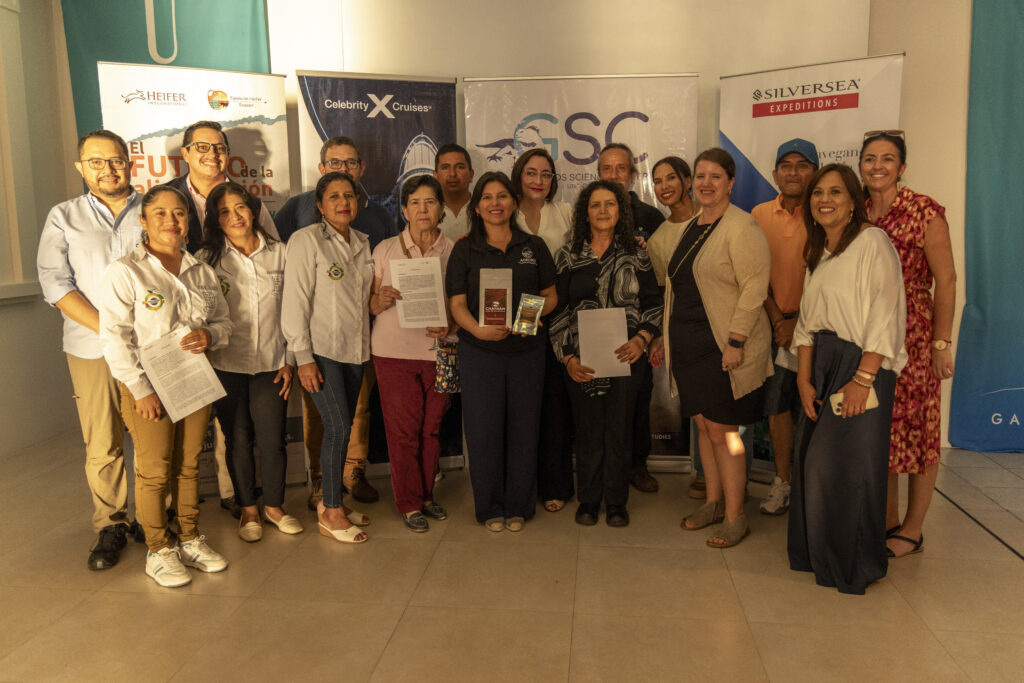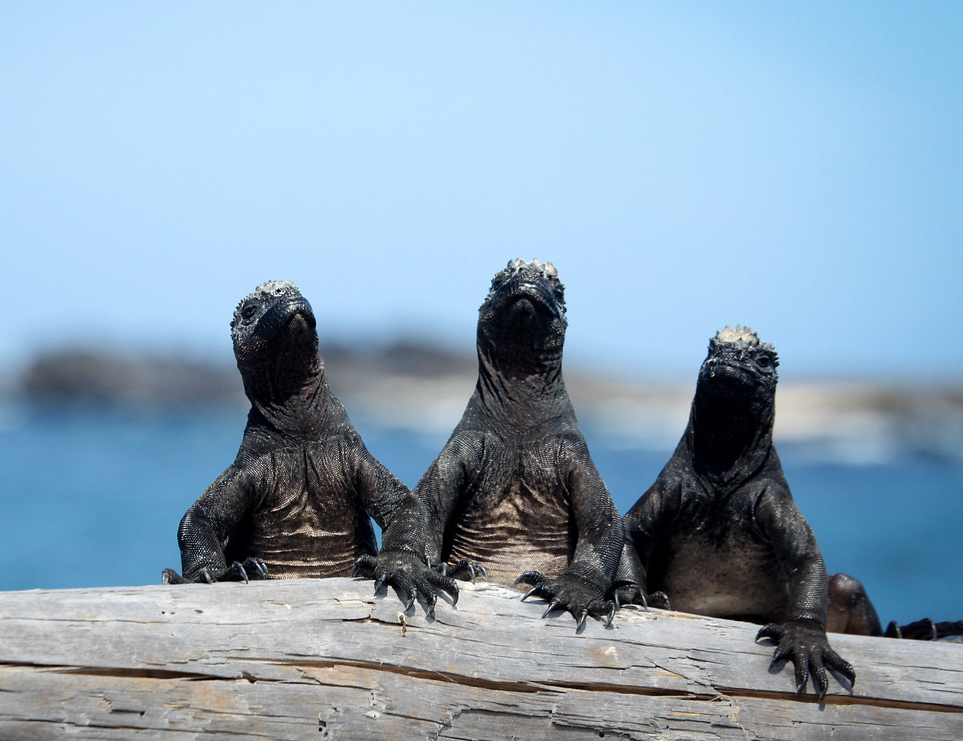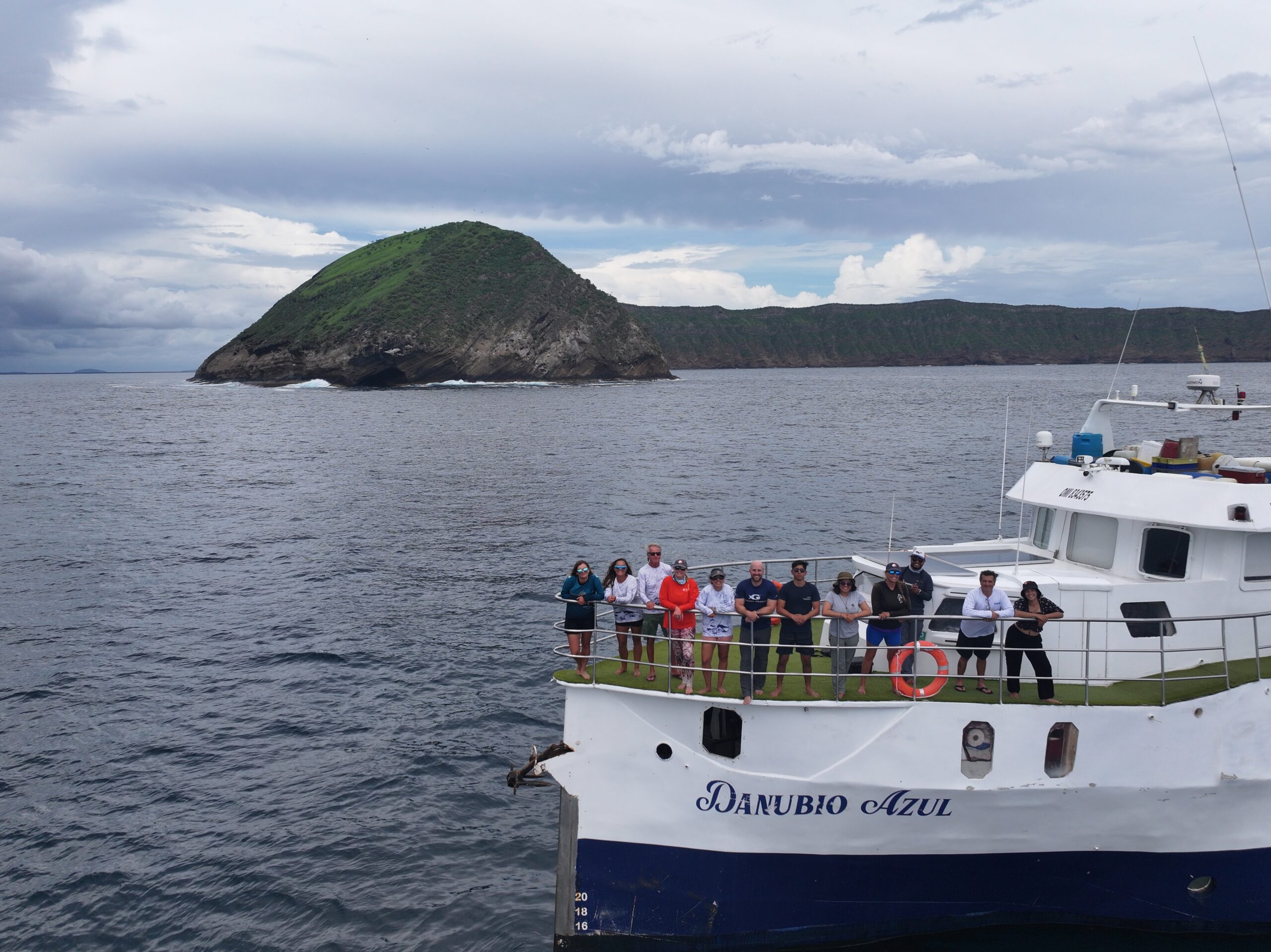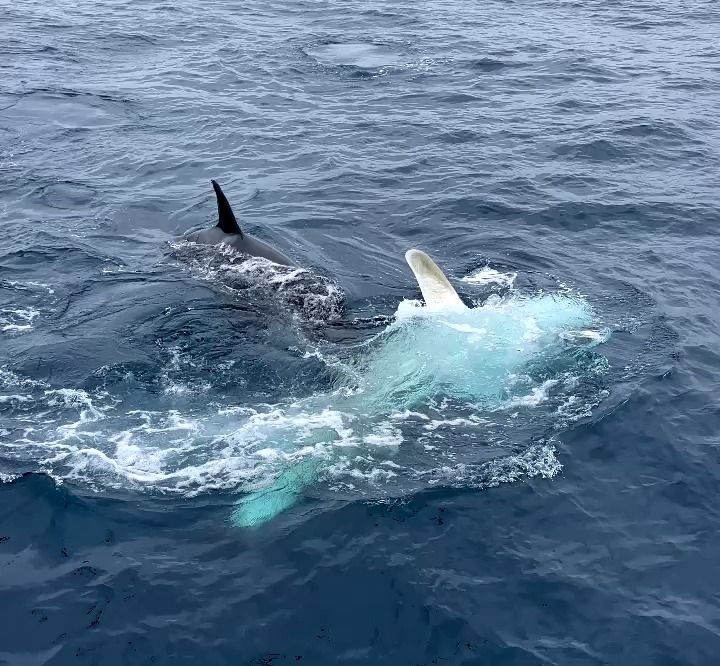Photo: Adrián Vasquez
Six agro-based businesses adding value to local raw materials have been selected for the REACCT (Reactivating the Economy through Science, Community, and Work) project in San Cristóbal, Galápagos. These businesses: Galafruit, El Trapiche, Asecris/Chatham, Green Island, Lácteos San Cristóbal, and Galápagos Natural Harmony, were chosen based on criteria such as impact, market access, and innovation. All of them have previously participated in the Rural Business Schools initiative led by Heifer Ecuador Foundation in San Cristóbal.
On January 31, the REACCT project was officially relaunched. This initiative fosters the entrepreneurial ecosystem in San Cristóbal by providing mentorships in marketing, digital strategy, finance, and business models. The project is led by Universidad San Francisco de Quito (USFQ), University of North Carolina at Chapel Hill, and Heifer Ecuador Foundation.
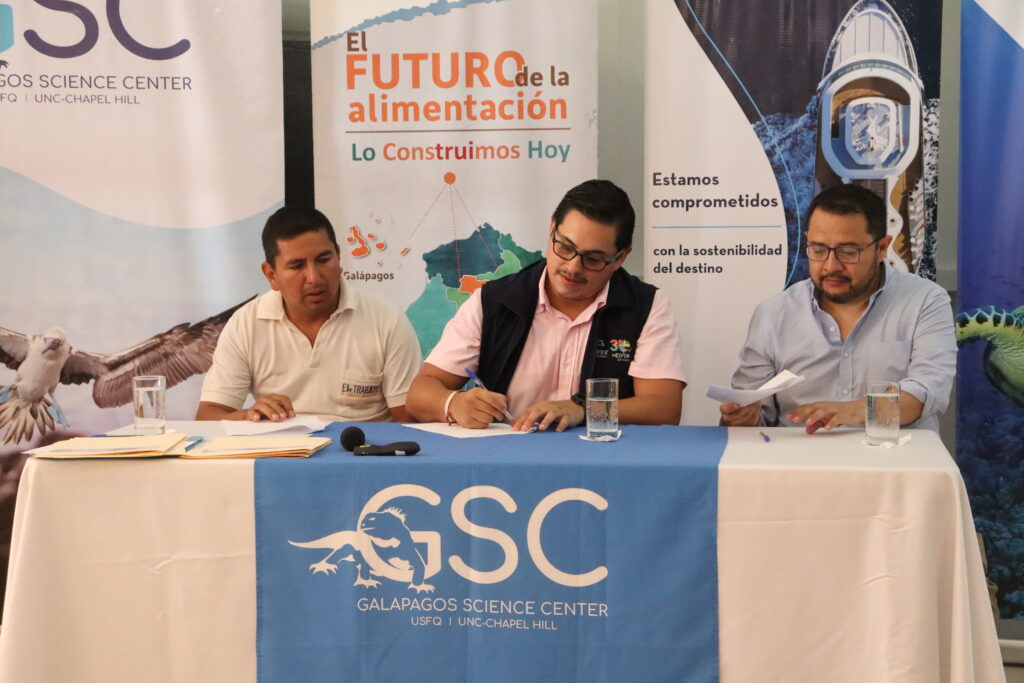
The second phase of these projects were enabled due to a gift of $600,000 from Royal Caribbean Group to UNC Center for Galapagos Studies. This support from Royal Caribbean Group, which operates Celebrity Cruises and Silversea ships in the Galápagos Islands, not only ensures the continuation of REACCT for the next three years, in turn supporting local businesses, but also is being used to advance scientific research and creates learning opportunities for students at the Galapagos Science Center.
The relaunch event was held at the USFQ Galápagos campus and attended by Carlos Mena and Amanda Thompson, co-directors of the Galapagos Science Center; Gabriela Naranjo, Regional Director of Royal Caribbean Group; Donaldo Navarrete, Coordinator of Heifer Ecuador Foundation in Galápagos; and participating entrepreneurs. During the event, a Letter of Agreement was signed, reaffirming the shared commitment to sustainable community development.
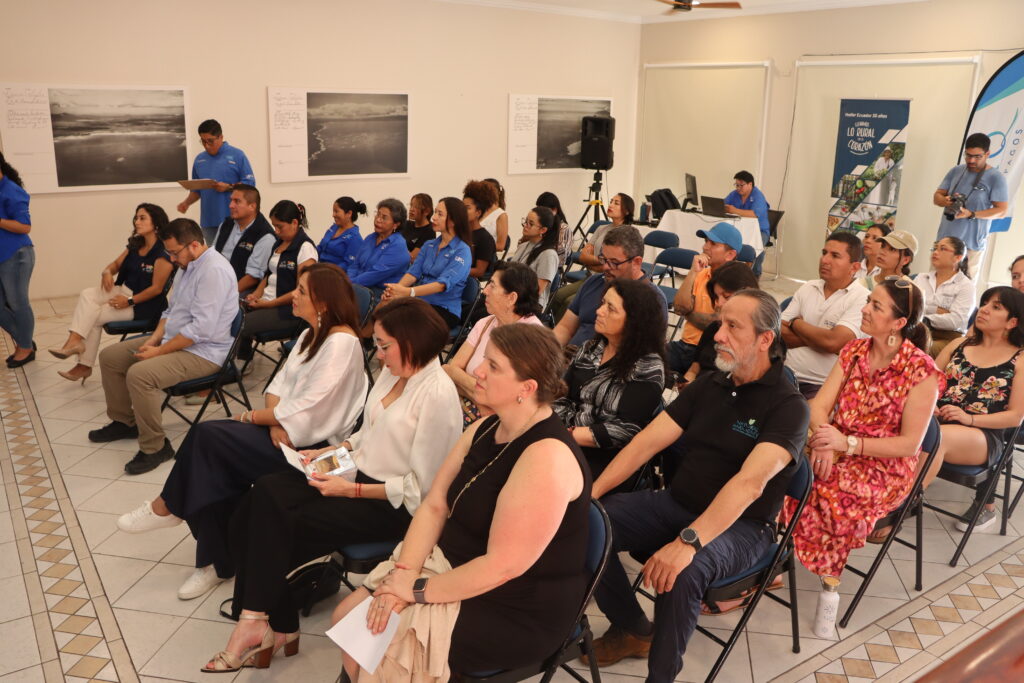
Gabriela Naranjo highlighted the project’s impact on promoting a sustainable local economy. “This project proves that we can explore and enjoy a place as extraordinary as Galápagos while leaving a positive mark. By creating opportunities for entrepreneurs and improving the community’s quality of life, we are paving the way for a sustainable model where economic growth and conservation go hand in hand,” she said.
Donaldo Navarrete shared insights about the Rural Business School program’s origins and emphasized the importance of financial support for such initiatives.
“We have been in Galápagos since late 2019. In 2020, we launched the first Rural Business School with a group of entrepreneurs. Since then, Heifer has supported rural businesses through training, technical assistance, and equipment provision. Currently, we have around 18 businesses and more than 25 types of products with health certification in the market. However, one of the main challenges for adding value is access to financing. We saw a great opportunity for collaboration with Universidad San Francisco and the Royal Caribbean Group to accelerate these businesses, which have already gone through processes like obtaining health certifications and developing business plans, but still require financial support to reach the next level,” he stated.
Diana Aguirre, owner of ‘Green Island,’ a local organic products business, expressed her gratitude: “In 2019, we applied to REACCT but were not selected. Six years later, being part of this initiative means so much to us. It’s a testament to perseverance and motivates us to keep growing.”
This relaunch strengthens collaboration between the private sector, academia, and the local community to promote economic growth and ecosystem conservation in the Galápagos Islands.
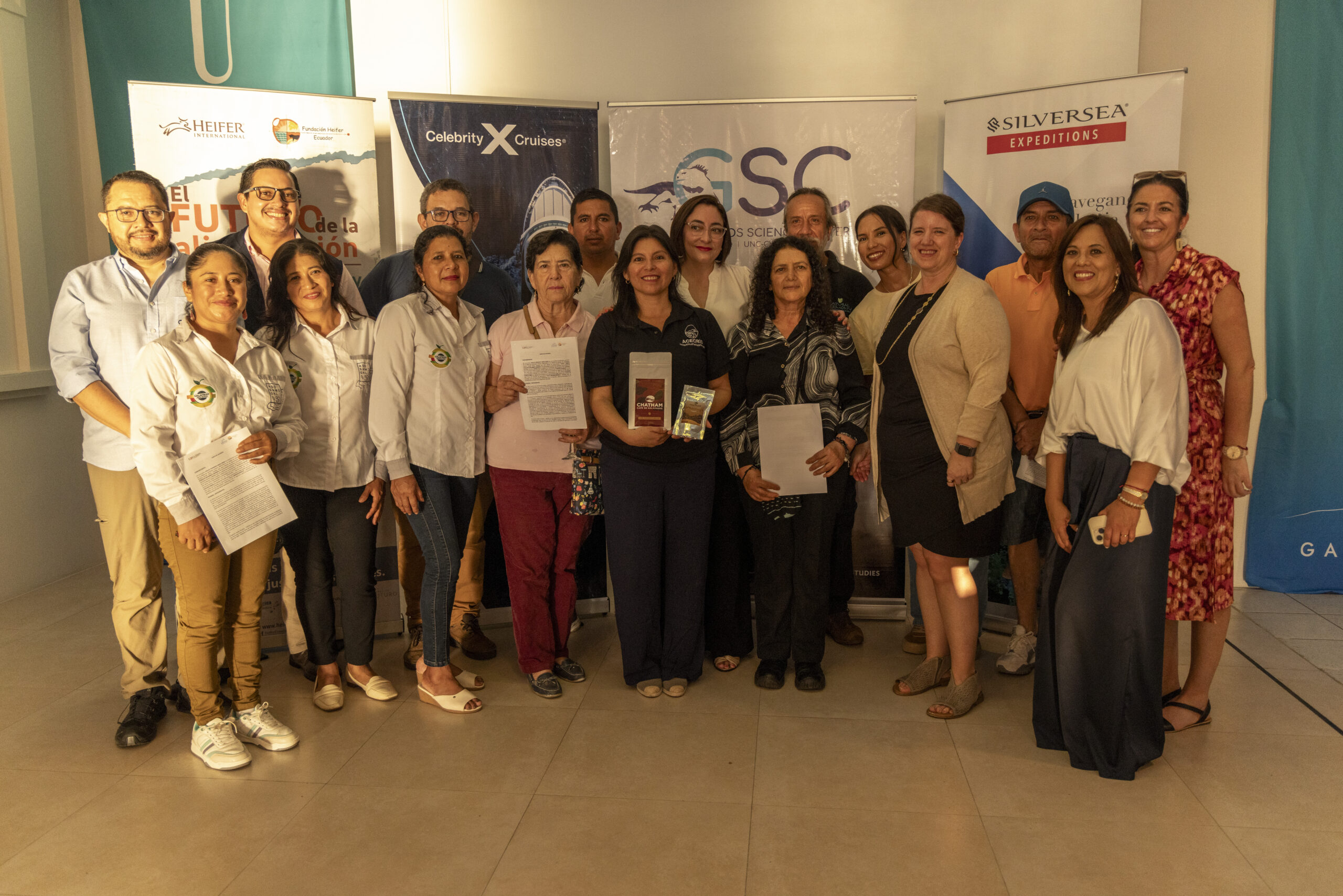
Photo: Adrián Vasquez

